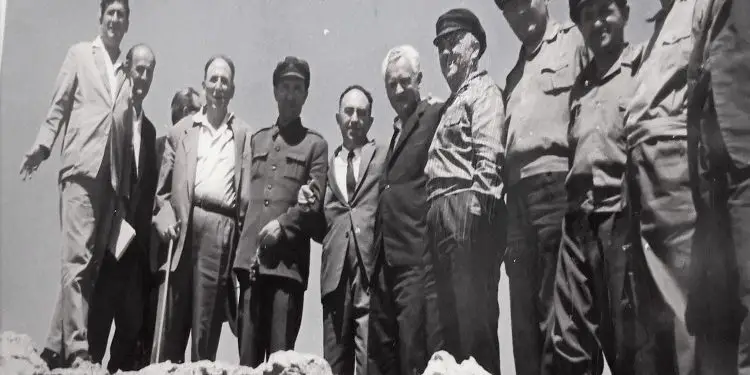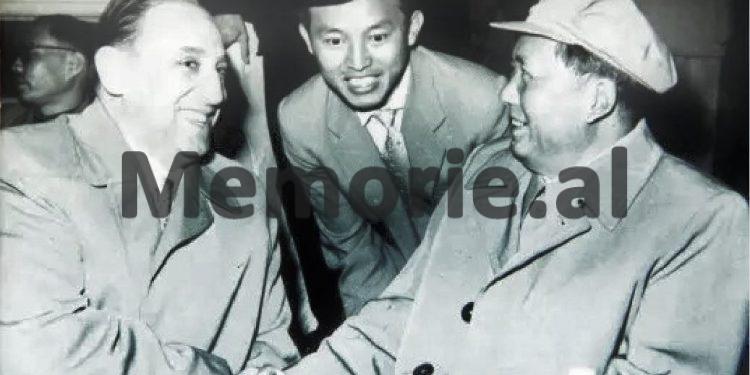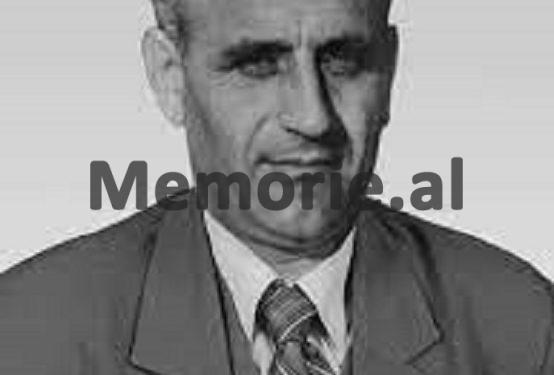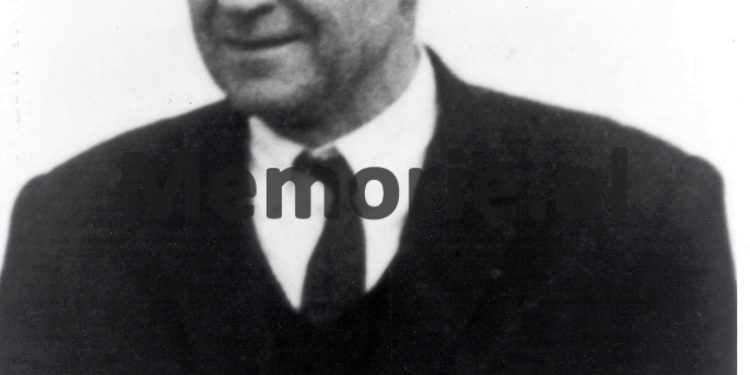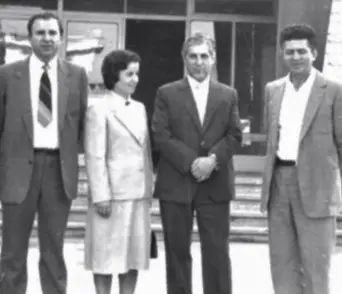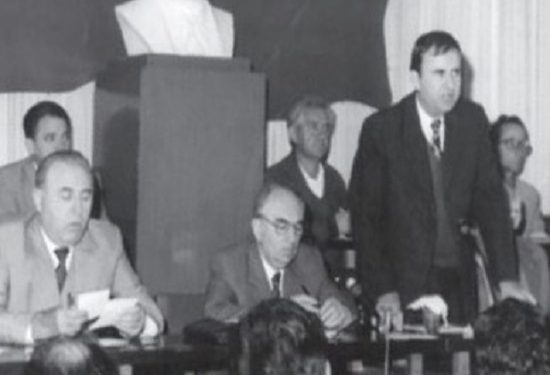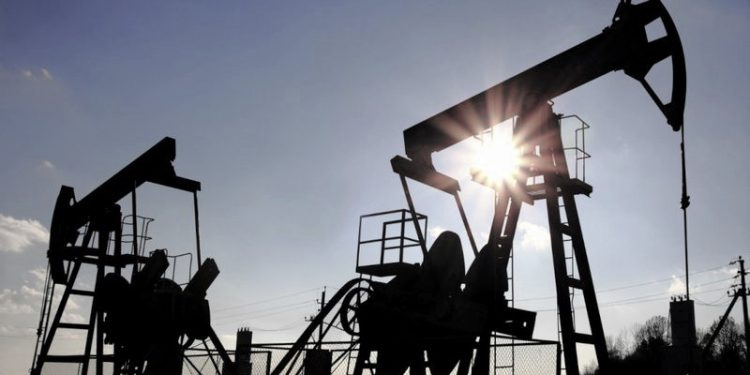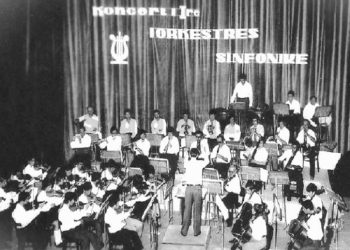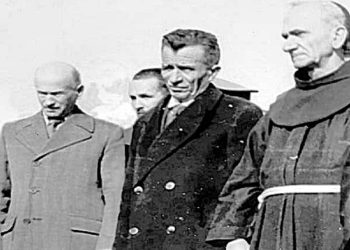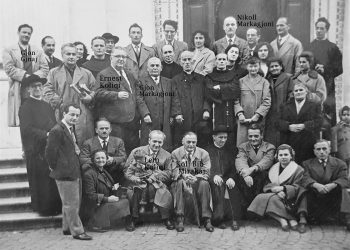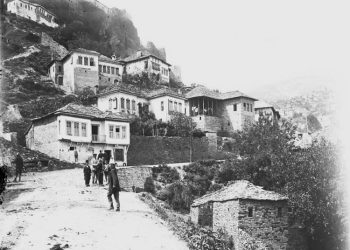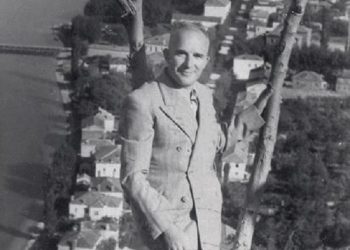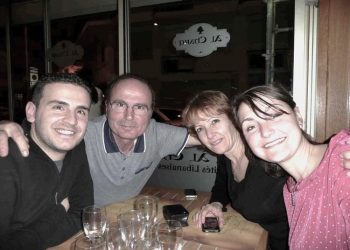By Agron Cuedari
Second part
-Four years of work as a director, at the Oil Refinery Plant in “Stalin City”-
Memorie.al / The processing of crude oil, for the extraction of by-products from it such as fuels, fuels, bitumen, etc., so precious for the development of a country’s economy, is also early in our country. The first refinery in our country (distillery), with a small processing capacity, was established by the concessionaire company AIPA, since its discovery of the first oil source in Kucovo, in 1935. Another refinery was also built in Kucovo by the German occupiers in 1944, but at the time she was being commissioned, she was attacked and destroyed by British aviation bombing.
Continues from last issue
The plant had no surrounding wall and no gates at its entrances and exits. There was also no canteen, so necessary for the food of the employees, in those premises polluted by oil gases. The roads from the entrance, along the wards to the exit, were potholes from the weight of the high tons of vehicles transporting bitumen and fuel, even though they were repaired every year. For the factory workers who were so needy, no family residential building had yet been built with voluntary contribution.
The offices of the central administration were in a small one-story, five-room building built before the liberation as a cloakroom for Italian workers. Gathered in a special meeting with heads of branches and heads of departments, to find solutions to these disturbing problems in the plant, after exchanging opinions we decided to build the canteen located between the three AVT-1 plants as soon as possible. the bitumen department and the barrel factory, where most of the workers of the plant worked, and to start without wasting time the work of erecting the surrounding wall of the plant.
In the three variants discussed to raise it with bricks, concrete blocks or metal railings, the latter took precedence, as the construction would be done faster and at a lower cost. For the construction of the railings, the surrounding materials would be used, pipes that were out of use inside the plant of the oil extraction companies, as well as the “eel” profiles that came out during the opening of the sheet metal envelopes in the factory for the production of barrels for packaging bitumen. For the administration offices, the idea was to build a two-story building, with 10-12 rooms, adjacent to the red corner.
For the housing of the employees, based on the requests that had been presented to the company year after year, we decided to talk to the Executive Committee of the city, to give us the construction site as close as possible to the factory for the construction of two buildings, adjacent to each other, with a voluntary contribution. the other. The longest discussion was about the construction of the road with a length of about 2 km, starting from the entrance of the plant to the administration offices, continuing leaving the AVT-1 plant and the bitumen department on the left and the AVT-2 plant on the right. to join the road that connected the city center with the old Kucova.
The variant that was approved was for this road to be paved with concrete and not with asphalt, because that is the only way it could withstand for several years the dozens of high-tonnage vehicles over 20 tons that trample it every day. Through two new gates, every movement in and out of the factory would be controlled. A considerable concern was the fact that, for the construction of these facilities, no investment funds had been requested or approved for 1973. In order not to commit a violation, with a detailed report on the need for these investments, I went to the General Directorate of Oil in Fier.
In the meeting with the specialists of the investment and finance department, I got the approval to do these works and that the fund for them would be given to us in the second half of the year. In order not to prolong this story, the progress of the works for these objects went as follows: the canteen, the surrounding fence and the administration offices were completed in 1973. The road with all the sidewalks and flowers on its sides was completed in the same year.
The two buildings housing more than 50 families were completed in the second quarter of 1974. These two five-story buildings with voluntary contributions were erected near the plant at the top of the city’s green park. During the years 1971-1972, and perhaps even before, due to frequent stops due to non-rhythmic evacuation of finished by-products, bitumen was poured into a basin the size of a football field, with a depth of 1.5-3 meters. Liquid that was estimated at 10-12 thousand tons. This amount of bitumen that was reported for production, because it remained in stock and unsold, had solidified large financial funds.
Extracting and evacuating it for export would greatly improve the plant’s financial balance. In the work group to carry out the extraction of bitumen from the basin, we assigned the two best specialists that the plant had, P. Gjoza and H. Xhyberi. With the preparation of the plant in the office and its placement on the edge of the basin, where the depth was greater, in June 1973, work began on extracting it from the pit, packing it in barrels and sending it for export. During the three months of June, July and August, 6000 tons were extracted in 1973, 4000 tons in 1974 and 2000 tons in 1975.
A small portion of the financial income that was generated from this activity was used to subsidize part of the expenses that the factory workers 97 Narratives and impressions spent on food in the canteen, as well as to reward them with an additional salary at the end of each year. . In March 1974, when everything was going very well, suddenly a very serious event happened at the plant. The explosion in a bitumen warehouse killed one worker and injured six others. It was seven in the morning, shift change time.
In the empty space between the two tanks of 200 tons each, when the workers of the first shift put on their work clothes, one of the workers of the night shift plant who was tasked with filling the tanks with liquid bitumen, instead of opening the gate of the tank that was ready (via steam coils to heat the air inside it), it opened the shutter of the other deposit by mistake. The liquid bitumen at a temperature of 200°C, in contact with the cold air inside the deposit, caught fire and exploded the deposit.
After the painful rites that are followed in these disaster cases, in a responsible analysis that we did at the place where the explosion happened, we came to the conclusion that the cause was human error, but lessons should be learned from it. If the improvised wardrobe between the two deposits had been 10-15 meters away from them, there would not have been those consequences. Two months later, I was called to the Council of Ministers to report on this serious event.
I had never been to that high state institution before, but upon hearing it I knew that the Prime Minister, Mehmet Shehu, had a heavy shadow, was strict and very authoritarian. Along the way, I thought that the easiest measure they would give me was to dismiss me from my position as director. I don’t know whether or not it was my luck that that meeting was chaired by his deputy, Adil Çarçani. After briefly informing about what had happened, before the deputy prime minister spoke, the member of the government, Avdyl Këllezi, took the floor.
Contrary to what I thought and expected, he expressed himself with these words: “Comrade Adil, I was in that factory two years ago, worried that the plan was not being implemented.” Agroni, as the newly appointed director in that position, raised some problems with me and promised me that, if he was helped to solve them, the plans in the factory would be realized. He kept his promise. In these last two years, plans have been exceeded. The serious event that happened, even in my opinion, was a human error”. In conclusion, the disciplinary measure that was given to me by the government was a warning before the Council of Ministers.
In February 1975, the secretary of the Party Bureau at the factory, M. Hoxha, told me in confidence: “You are sending your CV to the Party Committee.” Concerned that he might have been asked to transfer me as Director of the Oil Refinery Combine in Ballsh (it was rumored that I was also one of the candidates), I begged him that when he went, he would try to find out why they were looking for him.
When he returned, he told me that a request had been made by the Directorate of Personnel of the Ministry of Foreign Affairs, to conduct a 9-month course for our trade missions abroad. When I told this to Donika, she again did not take it well. “We are very well here in the City, – he told me, – where are we going to leave the children”?! I told him that we would see and do. In those years when I worked as a director at the oil processing plant, I spent most of the time during the day, from morning to late afternoon, at work.
I also ate lunch there. Saturday afternoon and Sunday I devoted myself to my family. Little Albana, under the care of her mother and Donika, enjoyed perfect health and grew day by day, while Kozeta, after finishing primary school, started the eighth grade. In addition to movies in the cinema and frequent concerts organized by the palace of culture, every year we took our vacations on the beach, in one of the “Apollonia” beach cabins in Durrës, planned for vacationers from the Berat area.
In 1974 and 1975, plans to extract oil from existing and newly discovered fields were planned at very high figures, 2.5 million tons annually. These increased figures were one of the most possible opportunities to face the very disturbing problems that were being created in the country’s economy in those years, as a result of the breakdown of relations with the Republic of China and the isolation of the country. These high figures were also related to the optimism and great confidence that was created in the leadership of the party and the government that “Albania floats on oil and very soon new resources would be discovered and put to use”.
But, because things were not going well and the plans were not being realized, by order of the Politburo, an inspection team headed by the secretary of the Central Committee of the Party, Haki Toska, came to the oil. After a preliminary control in the first fifteen days of March 1975, to give the conclusions, an active party was organized in Patos, that same month, with the participation of the secretaries of the bureaus and the heads of all the institutions and oil companies.
In that activity, together with the secretary of the party office, M. Hoxha, I also participated. The activity carried out the works in the premises of the palace of culture in Patos, which was packed to the brim. What impressed me was that, unlike the previous activities where I had participated, in the stands, except for Haki Toska, all the others were unknown and most of them did not work in oil. As I later learned, among them were an oil engineer and two workers. The leaders of the party and the executive power in Fier and those of the General Directorate of Oil were absent from it.
In the conclusions initially presented by the control team, it was clearly stated that; for the very worrying situation that had been created in the oil industry, all the responsibility fell on the leaders of the General Directorate and those of the Geological Institute of Oil in Fier. Both from the report and from the discussants (probably ordered, according to me), the culprits still not addressed, with concrete names were: Lipe Nashi, Beqir Alia and Koço Plaku.
As far as I remember, the motivation was for the waste of oil funds in the purchase of 2-3 devices for the Fier hospital, for the construction of roads and foundations ahead of time and for delaying the placement of probes for drilling research wells, for the purchase of the American-type electronic seismic machine in Germany, for the numerous investments in the new Saranda reservoir with unexpected results, in the tendency to use the Gorishti reservoir in violation of the project, etc.
It was not difficult to understand that the responsibility fell on them, as leaders of the oil industry, who during twenty years of dedicated and impressive work, through the expansion of existing deposits and the discovery of two new deposits with large reserves (Marinza and Gorishti) , together with thousands of other oilmen, had taken oil extraction from 200,000 tons in 1954 to 2.2 million tons in 1974.
Because I was not completely convinced by what was being said in the act, quite suddenly, I got up from the place where I was sitting and addressed the presidium with these words: “It would be of great interest if you could tell us something more concrete about the intentional actions and violations that have been done by oil executives, to prevent the realization of oil extraction plans and what is their position on this”.
When I saw that Piro Gusho, the first secretary of the Party Committee in Fier, sitting three rows in front of me, turned his head to see who was speaking, I realized that I was wrong and sat down without further ado. In continuation, based on the conclusions of the control preceded by Enver Hoxha’s speech at the meeting of the Political Bureau a month ago, which for us had not yet been made known, where it was stated that the oil was run by a dangerous hostile group, and after they removed L. Nashi from the hall, they were given the bombshell announcement that he himself, B. Alia and K. Plaku, had carried out sabotage and hostile activities in oil, and for this they should be prosecuted.
The activity was closed, Lipe Nashi was arrested. On the way out of the building where the party’s active work was carried out, I worriedly met a friend of mine from high school, H. Frakulla, who worked as a secretary in the Party Committee in Patos. Discussing with him what I said in the act, he too was of the opinion that I had been rash without need, but told me not to worry, that in his opinion there would be no consequences and that I had better be aware for that matter the basic organization of the party.
The next day, I went to the office of Emine Guri, the first secretary of the Stalin City Party Committee. We talked with him at length about the asset works and, coincidentally, we both agreed that the measures that had been taken were not very convincing. Immediately after the activity, in-depth analyzes began in all oil institutions and enterprises. Such an analysis was also done at our plant. The fact that the oil processing plans were carried out every year and the control that was exercised on the use of financial funds did not find any violations relieved me of the great anxiety that had occupied me.
In the following months, according to a new organization of the oil sector, the processing plants were separated from the subordination of the oil institutions in Patos and passed directly under the Ministry of Industry and Mines. In July 1976, accompanied by Emine Guri, the new Minister of Industry and Mines, Pali Miska, who had replaced Koço Theodhos in that position, came to the plant. Works at the factory went well, the plan was realized every month. In the report I made to the minister, I guaranteed that the progress of the work would continue in the following months, without raising any concerns, since it was the first meeting with him.
Then, when more than a year had passed since I sent my CV to the Ministry of Foreign Affairs and the Party Committee had not received any notification to make it available to them, I found out that Minister Pali Miska, after he had also received the consent of the Party Committee, he thought of hiring me in the department that he headed. After three months, I was notified to appear at the Headquarters of the Central Committee of the Party in Tirana.For the first time in the Central Committee of the Labor Party of Albania Two days after receiving the notice, in the last week of September 1976, I went to Tirana. Although my mind told me that this call would be something for the better, the emotions were many. At the party’s Central Committee office, I appeared at the appointed time and according to the rules with the notice letter in hand. It was the first time I went there.
After I passed the entrance gate of that elegant building by the boulevard, the officers of the checkpoint inside it instructed me to climb the stairs to the second floor, where on the left side of the corridor the director of the staff, Mihal Bisha, was waiting for me. After I ascended the stairs, both to the left and to the right of that long corridor, at both corners of it, stood other plainclothes officers, pretending not to look at you, but certainly eavesdropping on every movement along the corridor and up the stairs. In that corridor, silence prevailed; nothing was leaking.
The only one moving at that moment was me. Mihali met me in the office, with that appearance of a man with a large body, with heavy shadows and a rough face. I had never met him, nor seen him at a distance. Upon hearing, I knew that for the contribution made during the National Liberation War and the trust in the party, they had charged him with one of the most important tasks, that of selecting the cadre in the highest spheres: in the party institutions, in the state departments and those of local government.
Without getting up from his seat, with a movement of his body he extended his hand and invited me to sit on a chair in front of him. After asking about my health, with a serious look and an authoritative voice, he told me: “Based on the very good evaluation in the work as Director at the Oil Refinery Plant, with the proposal of the Ministry of Industry and Mines, the party leadership has decided to appoint you Director of the Directorate in this same ministry. The task of this directorate is of special importance. It plans and provides, in cooperation with other institutions, the material base of the country and the import of the most important sectors of the economy that are covered by the Ministry of Industry and Mines”.
Then he added: “Be careful and don’t be in a hurry to make a mistake, like the one in the oil asset in Patos, a year ago”! After thanking him for the appointment, I assured him that I would work dedicatedly, to carry out the new task that was being assigned to me as well as possible. After leaving the Central Committee building, somewhat relieved of my emotions, I went straight to the Ministry of Industry and Mines.
The only one I knew there was Minister Pali Miska. I had met him three months ago, when he came to visit us at the factory. All the other previous leaders, Minister K. Theodhosi, Deputy Ministers Zenel Hamiti, H. Çaçi and R. Shehu and all the directors of the directorates, had left and been replaced by new ones. The meeting with the minister was very friendly. After wishing me good work and telling me that it was a pleasure for him to work together, he added in a low voice that he had tried hard for my appointment to that position, since the trials of hostile activity in oil had not yet ended.
“For your appointment, I also had to meet Hysni Kapo”, he told me. That same day in the afternoon, I went straight home to “Stalin City”. I knew that my mother and Donika, Kozeta and Albana, who had now grown up, had been worried all day and were eagerly waiting for the news of the reason for my call to Tirana. Although they saw me smiling and happy when I entered the door of the house and were reassured that the call had been for the good, before I finished speaking, the worries and complaints that are common in these cases began.
“Obobo, how are we going to leave the city that we love so much… how are we going to leave this good house in the center… how are we going to part with our neighbors, with Bari and Sofia that we are so close to… where do you want we find such a good job for Donika… and the worst thing is that the five years of university were not enough and she leaves us alone… who knows when it’s our turn to buy a house in Tirana…?! Three or four days later, after I handed over the task to the new director of the plant Ll. Shella, I parted very excitedly with the administration employees and workers in all departments of the plant, I left to start my new job at the Ministry of Industry and Mines in Tirana. Memorie.al
The next issue follows




